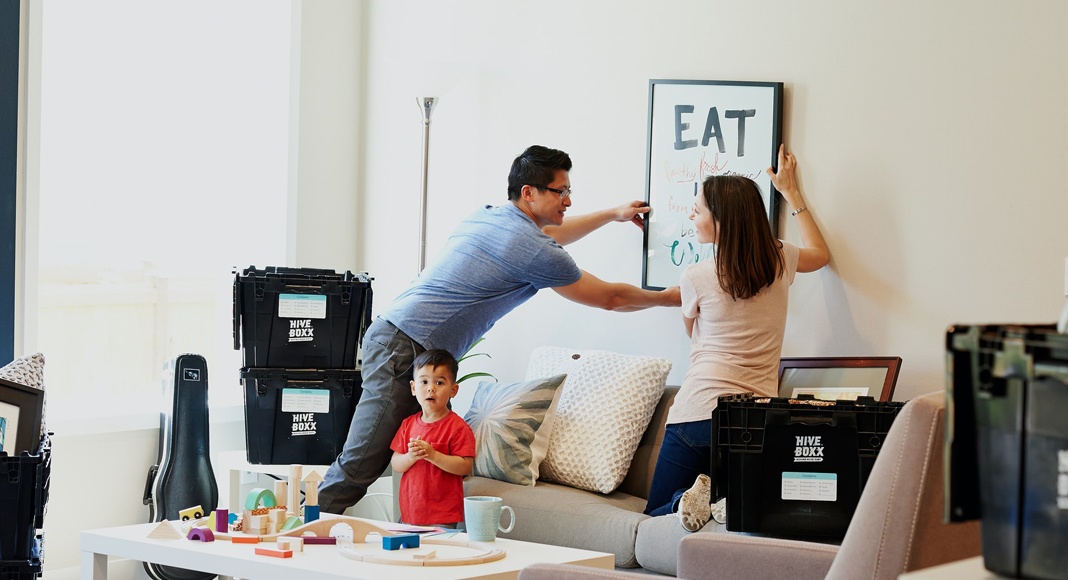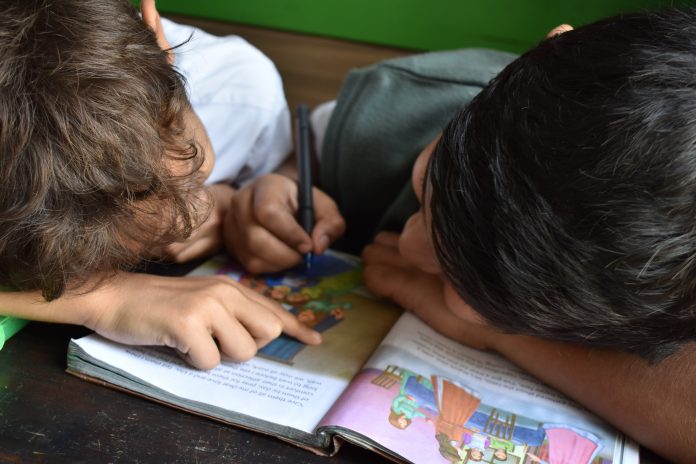
Studying developmental milestones and observing them in children was something I focused on while completing my degree. I remember going on home visits and observing if children were within the normal range for development, and I loved asking the parents questions about what skills their child had at that time and seeing their faces light up as they talked about how they had just learned how to build a tower of blocks or to jump. Being a parent now, I love seeing the stages my children go through and when they learn something new, it makes me so incredibly happy and proud of them for continuing their development!
When you look at a developmental milestones handout, you may be thinking it’s a checklist to be checked off at the exact time a child turns a certain age. If your child isn’t matching their peers’ speech or gross motor skills, it can be easy to think that your child is behind and, therefore, must have some sort of deficit.
I’m here to tell you that these checklists don’t need to cause more stress in your life.
Developmental milestone checklists can be an incredible tool for a parent to be able to see where their child needs to be by a certain age, but it is important to remember each child develops at their own pace. The CDC has great handouts that show you what you can do at each stage to help your child learn and grow so you get to be your child’s first teacher!
Here are some of the suggestions for what is typically expected of children by the age of three:
Social/emotional
- Calms down within 10 minutes after you leave them
- Notices other children and joins them in play
- Takes turns in games
- Shows a wide range of emotions
Language/Communication
- Talks with you in conversation using 2 or 3 sentences
- Says first name when asked
- Talks well enough for others to understand, most of the time
Cognitive
- Draws a circle when you show them how
- Avoids touching hot objects, like a stove, when warned
- Does puzzles with 3 or 4 pieces
- Turns book pages one at a time
Movement/Physical
- Strings items together, like large beads or macaroni
- Puts on some clothes by themselves
- Uses a fork
- Runs easily
These are many of the milestones suggested by the CDC. I found something even easier to use that will make tracking your child’s milestones kind of fun: the CDC has an app called the CDC Milestone Tracker. You can input each of your children and their ages and it will bring up the milestones for their age and you can check Yes, Not Sure, and Not Yet for where your child is on the checklist. I started doing this with my children and it makes it convenient to be able to check and see what they can already do and what we can start working on. Having something like that on my phone, easy to access, has helped me be more mindful of where my children are and gives me the tools to be able to notice if they are lacking in certain areas.
These are some of the many activities that you can implement into your parenting to help your child reach these milestones:
- Encourage your child to solve their own problems with your support
- Talk about your child’s emotions and give them words to help them explain how they are feeling
- Set simple, clear rules that your child can follow
- Read with your child
- Play counting games
- Let your child help with making meals
You get to start your child’s learning just by being present and spending intentional time with them. Sometimes, though, even if we are diligent and doing our best as mothers to guide our children through development, some still fall behind. The Child Mind Institute tells us that, “because each child develops in his own particular manner, it’s impossible to tell exactly when or how he’ll perfect a given skill. The developmental milestones listed here will give you a general idea of the changes you can expect as your child gets older, but don’t be alarmed if his development takes a slightly different course.”
When it comes to choosing a preschool option for your child at age 3 or 4, it can quickly get overwhelming with the number of options out there. I know that I am very overwhelmed with trying to decide on a preschool for my son next fall.
One option that you may not have thought about is the Early Childhood Peer Model Program in Idaho Falls School District 91.
In this program, children with disabilities and delays have the chance to learn alongside their typically-developing peers. This is helpful for both the typically-developing children and those who may have a disability. It is a high-quality, language-rich program that is research-based in early childhood curriculum and taught by certified staff. The benefits of this program include:
- Vocabulary enrichment
- Early literacy practice
- Acquiring school readiness skills
- Development of social skills including compassion, empathy, and positive perceptions of children with disabilities
The Early Childhood Peer Model Program can be incredibly beneficial for children who are typical in their development as well. They start out in a school setting and learn how to interact with children of various abilities. They can become leaders to their peers and demonstrate the compassion and empathy that we all hope our children will develop.
We are so grateful that we have a school district here that is passionate about the development of the children in our area, just like each of us is with our own children. We all want our children to reach milestones and have optimal development. There are resources out there! It’s not as complicated as we sometimes think it is and, at the end of the day, being present and loving with our children is what will help them in their development the most.











